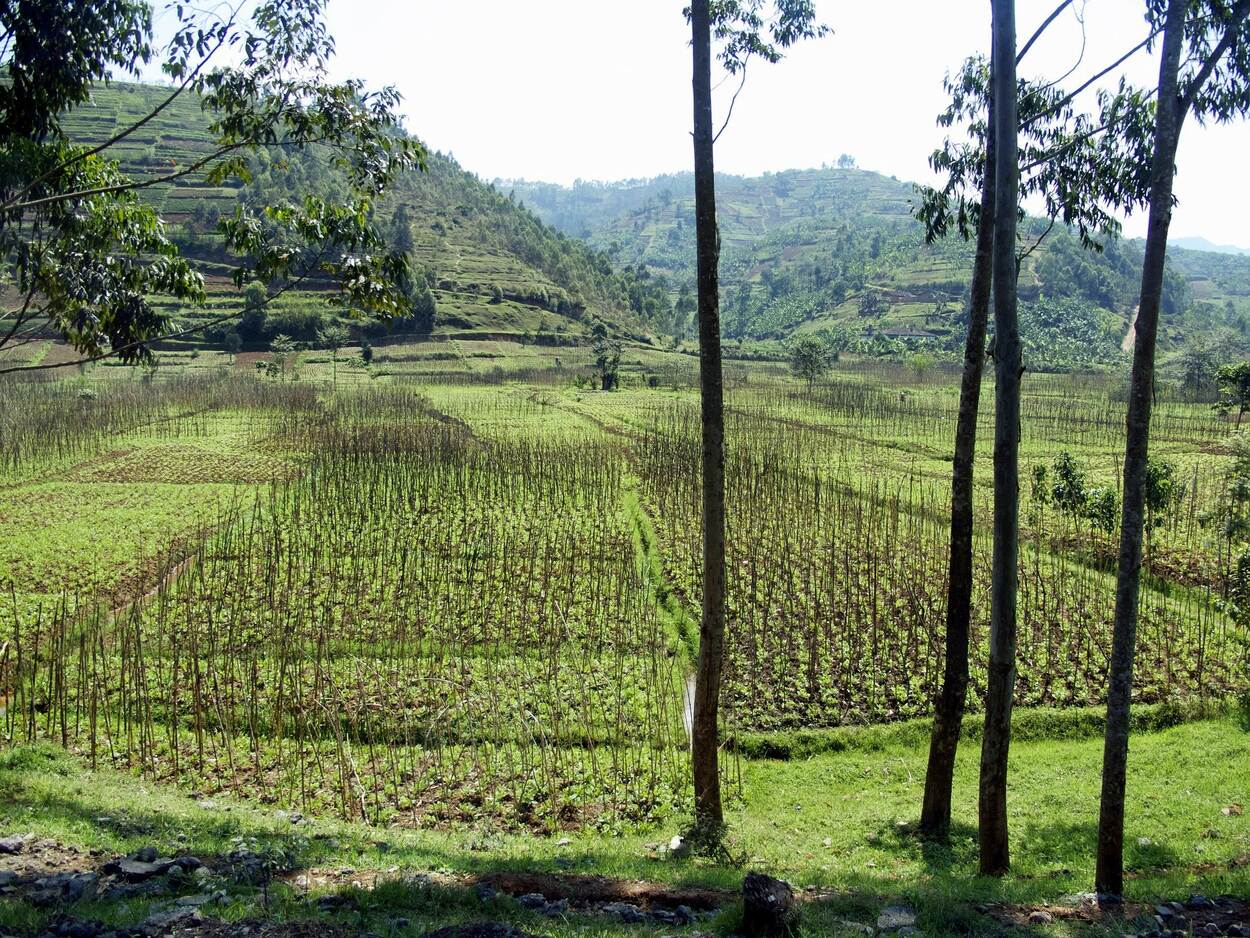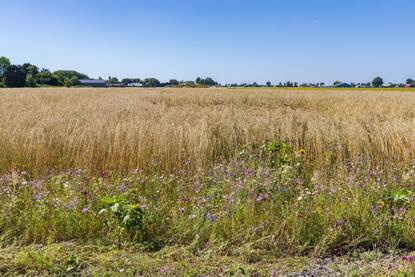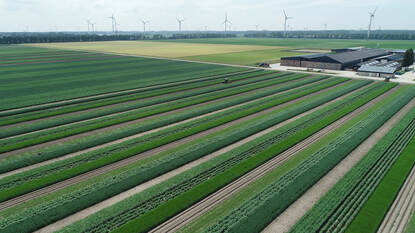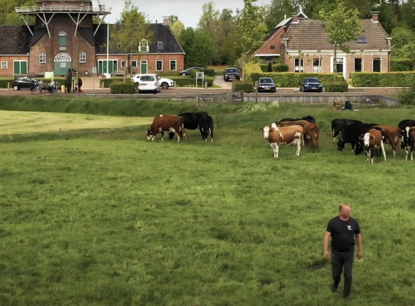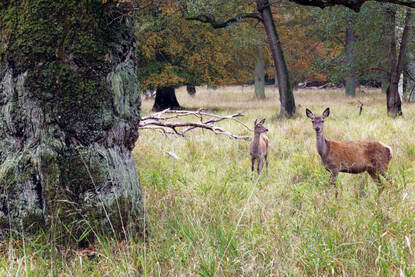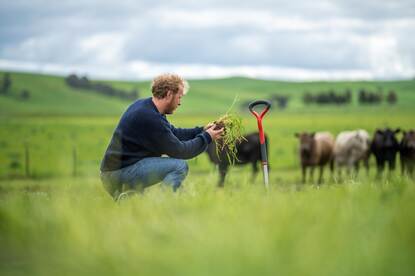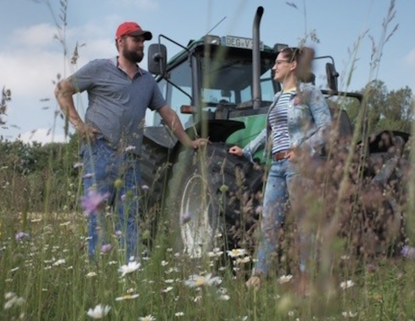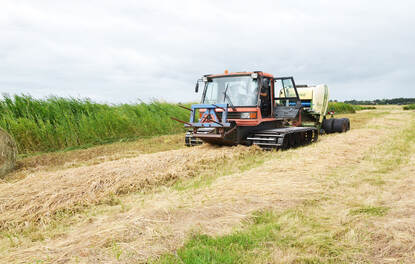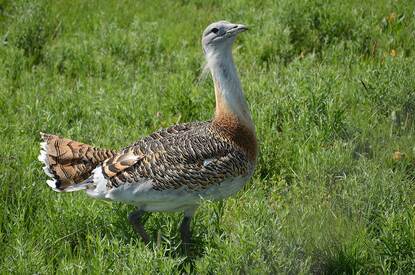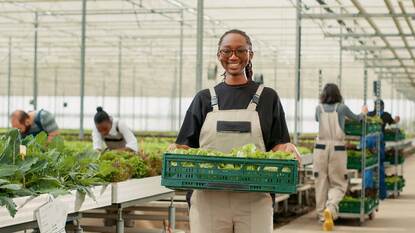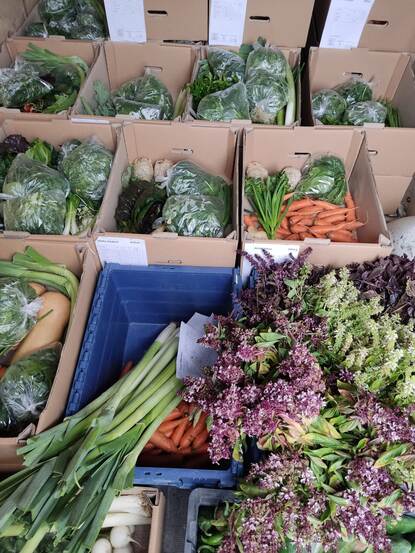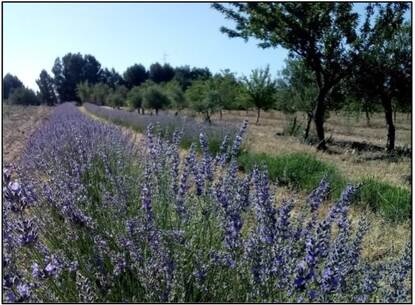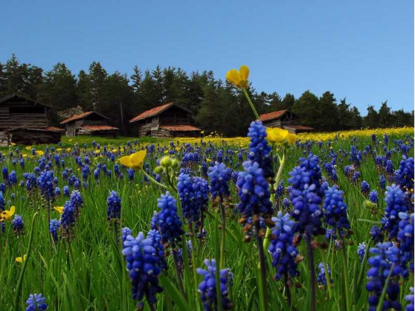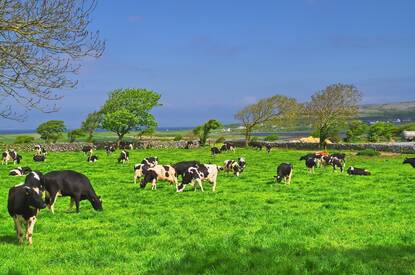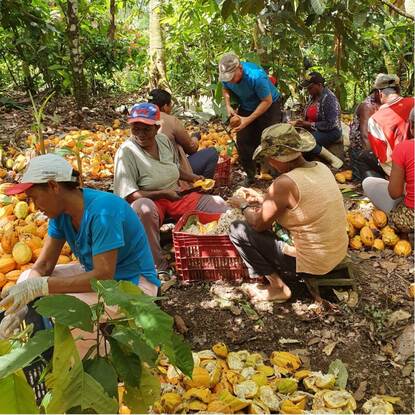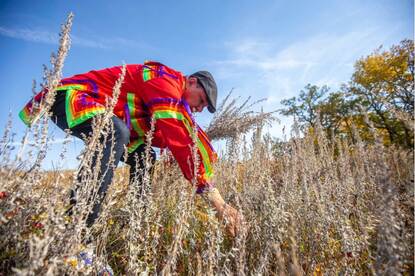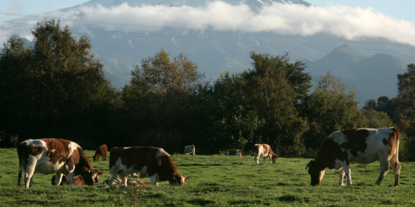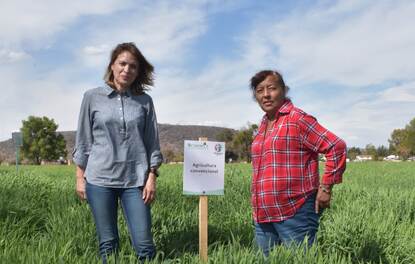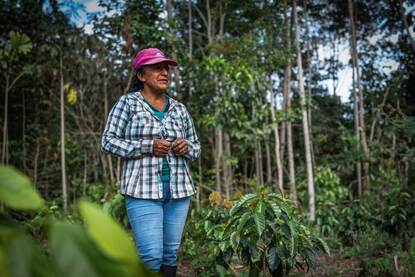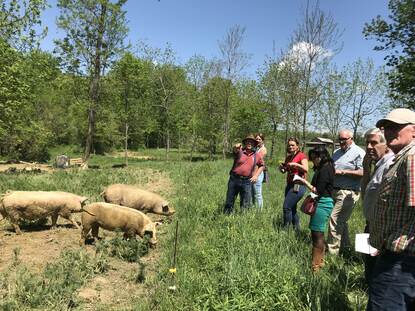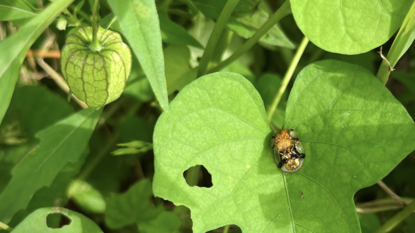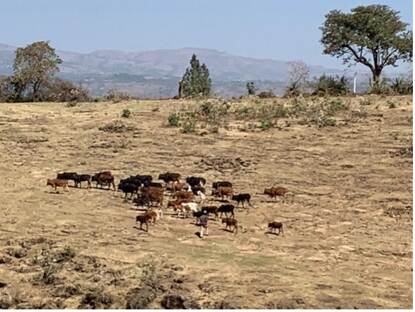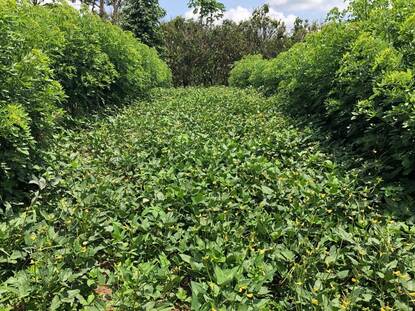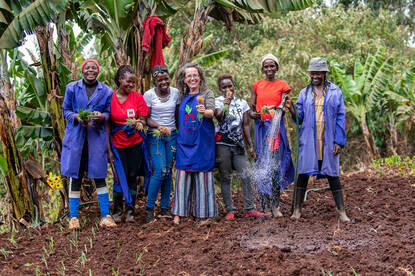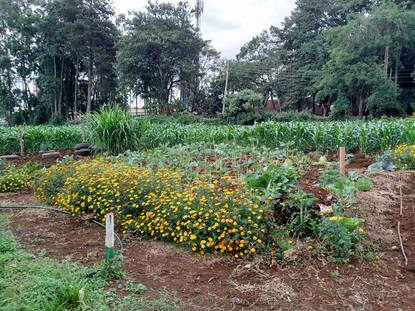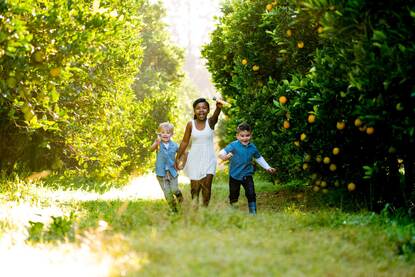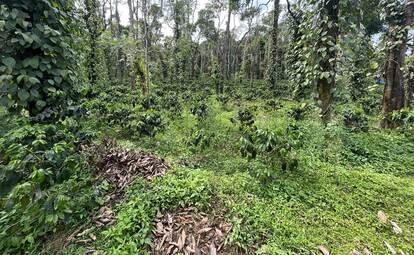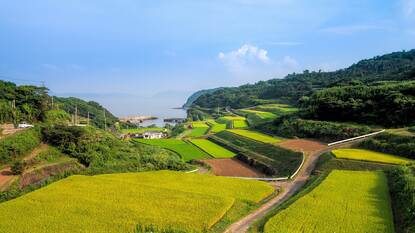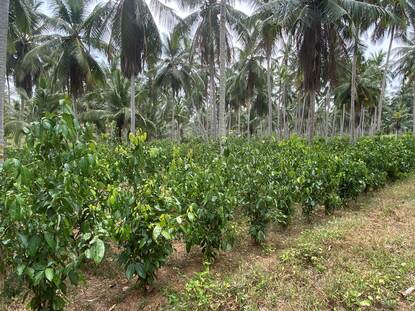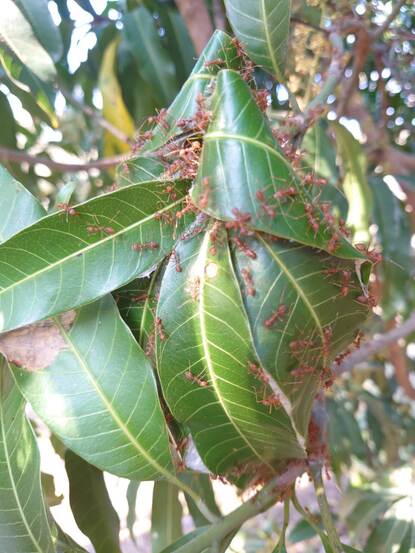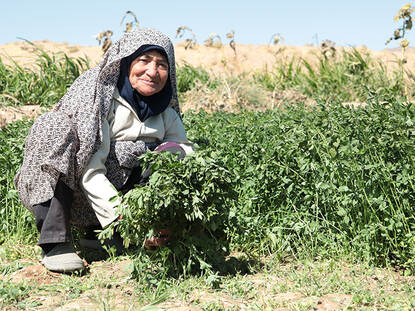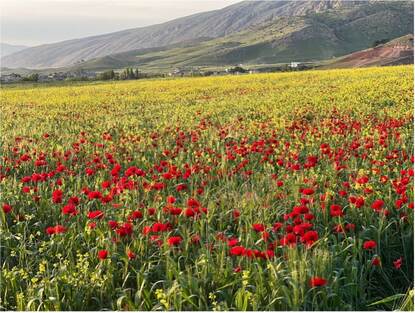In Uganda and Rwanda, nature-inclusive agriculture is not a given. However, both countries have started projects to educate new generations of farmers about the pros and cons of this farming method. Two years ago, the Netherlands Food Partnership (NFP) and the IKEA Foundation started the Youth in Agroecology and Business Learning Track Africa (YALTA) initiative, also in Uganda and Rwanda. This initiative emphasizes the inclusion of youth perspectives in policies, research, and education.
As two-thirds of the population in Uganda and Rwanda depend on agriculture for their livelihood, a sustainable agricultural model is needed. Over the years, several policies and legislation have been developed and implemented by government to support nature-inclusive agriculture.
Measures on public level
To ensure food security and combat the challenges posed by climate change, the Ugandan government launched the National Organic Agriculture Policy in 2020. Three years later, however, conventional agriculture that relies on non-organic external inputs still prevails. This is primarily due to factors such as lack of money and support necessary to buy the often more expensive organic inputs, as well as limited knowledge and awareness of potential benefits of organic inputs.
Rwanda faces a fundamental challenge – a dense and rapidly increasing population living on fragile and eroding land resources, made worse by climate change. In response, the Ministry of Environment launched the Development of Agroforestry and Sustainable Agriculture Project in 2022. This project aims to address these challenges by advocating for and supporting the restoration and rehabilitation of landscapes, including degraded lands, through agroforestry systems. By focusing on sustainable agricultural development, the project plans to rehabilitate 60.000 hectares of agroforestry lands, positively impacting the living conditions of at least 250.000 beneficiaries in the target districts.
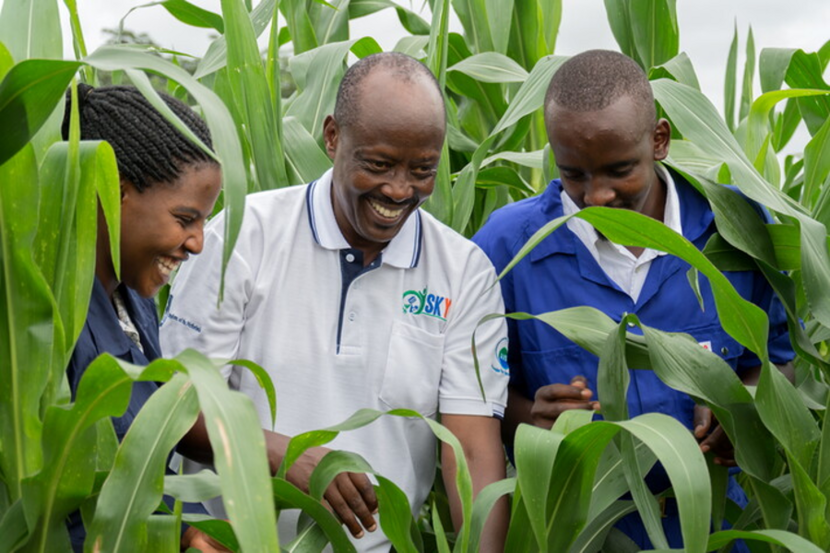
Education and advocacy in Rwanda
To inform and guide the next generation of farmers and food systems actors about best practices of nature-inclusive agriculture, good education is key. That is why research and education institutes, government agencies and climate and agriculture networks from Rwanda joined hands in a working group. Their goal is to increase attention to nature-inclusive agriculture in research and incorporate it into the agricultural education curriculum of Rwanda.
As part of these efforts, the first Rwanda Agroecology Symposium was organized in 2022, in collaboration with the Ministry of Agriculture and other higher learning institutions. The symposium aimed to identify concrete recommendations and follow-up actions. Additionally, universities conducted a mapping of available courses and assessed each other's needs to enhance the focus on nature-inclusive agriculture in their curricula. The University of Rwanda sought advice from the working group to incorporate this topic into their current curriculum review.
The group also advises the Rwandan government in the national Ecological Organic Agriculture steering committee and gives input in the national multi-stakeholder platform to advance opportunities for youth.
Young farmer Emmanuel: ‘In Uganda, many farmers think short term and just want to make sure there is food on the table the next day’
Collaboration and advocacy for young people
Recognizing the importance of involving young people in nature-inclusive agriculture, the Netherlands Food Partnership (NFP) and the IKEA Foundation started the Youth in Agroecology and Business Learning Track Africa (YALTA) initiative. YALTA, which ran from 2020 to 2022 in Uganda, Rwanda, Ethiopia, and Kenya, aimed to create a conducive business ecosystem for youths in agroecology. The initiative emphasized the inclusion of youth perspectives in policies, research, and education through the formation of multi-stakeholder partnerships and coalitions at a national level.
Emmanuel, a 32-year-old participant in the YALTA program from Uganda, serves as a testament to the impact of nature-inclusive agriculture initiatives. Inspired by YALTA's introduction to successful business models and connections with inspirational individuals and businesses, Emmanuel now manages a youth-led demonstration farm located approximately 50 kilometers outside of Kampala. This farm focuses on organic food production and organic fertilizers and biopesticides.
Emmanuel wants to create a better planet
Emmanuel’s farm actively promotes nature-inclusive farming practices such as soil and water conservation technology, agroforestry, vermiculite utilization, pest management, and nutrient recycling. His primary motivation is to create a better planet for future generations. ‘In Uganda, many farmers think short term and just want to make sure there is food on the table the next day. I try to teach people that when you invest in your soils and think about the nature around you, you will be able to produce more food in the longer term. It is more healthy and more profitable,’ Emmanuel says.
Emmanuel's example extends beyond his farm. He actively participates in policy discussions at the government level, aiming to influence the implementation of policies and emphasize the need for direct support, input, and alternatives. He recognizes the importance of changing consumer mindsets and increasing awareness of the advantages of organic food, which is still low in Uganda.
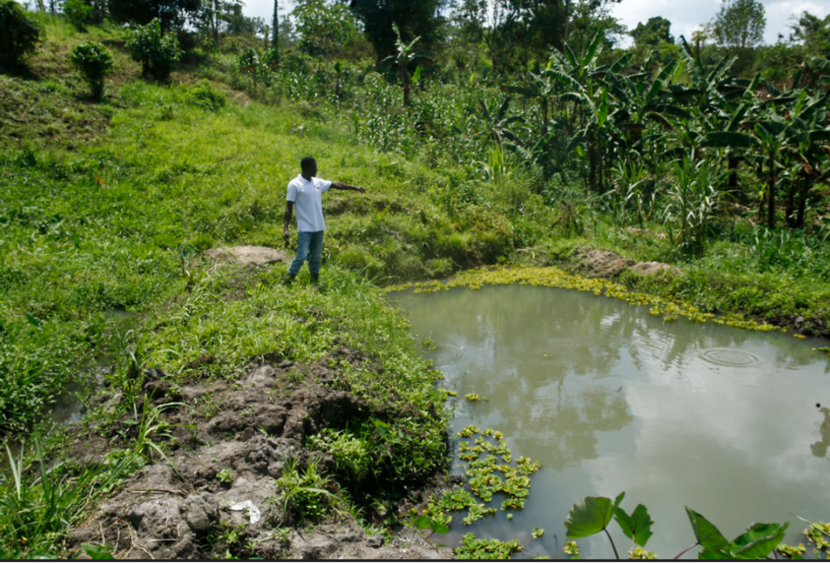
Challenges and structural solutions
Despite these initiatives in both Uganda and Rwanda, there are still limitations to the adoption of nature-inclusive agriculture. Small-scale farmers face obstacles such as limited access to land, credit, and technical knowledge, which hinder their ability to adopt sustainable practices. While national policies and proposals exist, they do not always reach small-scale farmers and their effective implementation is not always certain. Moreover, there is limited demand for sustainably produced food which endangers the economic viability of nature-inclusive agriculture.
To address these challenges, it is crucial to work on structural solutions that provide support for farmers. Both the public and private sector need to invest in sustainable agriculture, research, and development. This investment and commitment can lead to the development of new solutions and technologies that enhance the adoption of nature-inclusive practices.
Contact
Would you like to know more about the current developments in the domain of agriculture and nature in Uganda and Rwanda or contact the agricultural team at the Netherlands Embassy in Kampala or Kigali?
You can visit the country page of Uganda and the country page of Rwanda at the website agroberichtenbuitenland.nl of the Netherlands ministry of Agriculture, Nature and Food Quality. You can also send an email to KAM-lnv@minbuza.nl
